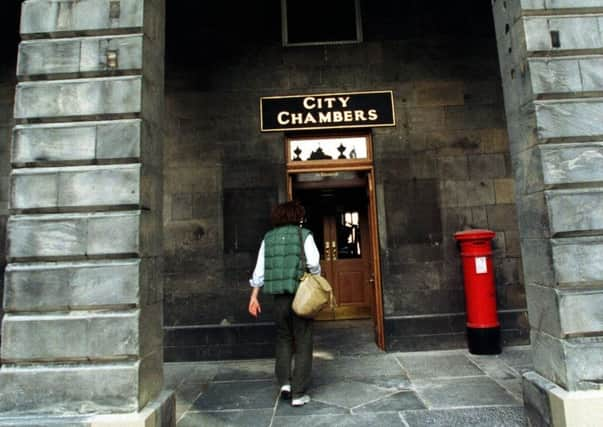Scotland's councils shell out £627 million on severance packages


Opposition politicians expressed alarm at the amount of public money used to pay-off staff by the country’s 32 local authorities.
According to figures compiled by the public spending watchdog Audit Scotland more than 15,000 severance deals have been struck by councils for outgoing staff since 2011/12.
Over that time the average pay out was £40,000.
Advertisement
Hide AdAdvertisement
Hide AdAn average of six severance deals a day were agreed across Scotland’s 32 council in the past financial year, at a total cost of £78 million.
The number and average cost both fell in 2016/17 compared to the previous year, with cases down by 465 to 2,195 and payouts falling by just under £2,000 in real terms.
Since 2011/12 the number of local authority severance deals have dropped by almost half while the average has fallen from £39,525 in 2011/12 to £35,592 in 2016/17.
According to the data, the size of the average pay-out peaked at £47,997 in 2012/13 and the overall average for the period came to £40,096.
The figures were highlighted by the Scottish Conservatives, from a recently published wider Audit Scotland report into local government finances.
The Scottish Conservatives said the extent and size of the payouts suggested councils should tighten up their procedures. While the Taxpayers’ Alliance pressure group said they “beggared belief”.
The report also found £79 million in council reserves was used last year for general running costs and some local authorities risk running out of General Fund reserves if officials continue to use them at currently planned levels.
Scottish Conservative local government spokesman Alexander Stewart said: “People will be horrified that hundreds of millions of pounds have been used in this way.
Advertisement
Hide AdAdvertisement
Hide Ad“Everyone understands the need for councils to become more efficient, and reducing the headcount in certain departments may be a way of doing that.
“But the average payout is £40,000, which means some senior staff will have been getting golden goodbyes to make the eyes water.
“There’s no point trying to make efficiency savings in one area while millions are being needlessly wasted in another.
“It’s no wonder some councils are burning through their cash reserves just to keep their head above water when this massive spend is considered.”
John O’Connell, Chief Executive of TaxPayers’ Alliance, said: “This enormous sum truly beggars belief.
“Public sector workers are already 10% better off than those in the private sector, with better pensions and more job security. These golden goodbyes are a slap in the face to all hard-pressed taxpayers and should be ended immediately.”
The sum paid out to leaving workers came to light at a time when local authorities are facing harsh financial pressures.
Having endured years of austerity, this month independent analysis conducted by the Scottish Parliament Information Centre (SPICe) calculatged that total revenue funding for councils will fall by 1.6 per cent next year – the equivalent of a £157.3 million real terms decrease.
Advertisement
Hide AdAdvertisement
Hide AdIn the wake of Finance Secretary Derek Mackay’s budget, individual councils have warned they will have to cut back on services. While many have indicated that they will be forced to put up council tax by three per cent. Some have said they would raise council tax by more than that were it not for the three per cent gap imposed by the Scottish Government.
Councils have also warned that they will struggle to implement Mr Mackay’s budget promise to give public sector workers earning less than £30,000 a three per cent pay rise next year. Higher paid council workers have been promised a two per cent rise.
A spokesman for local government umbrella body Cosla (Convention of Scottish Local Authorities) argued the cost of getting rid of employees would lead to savings in the long turn.
He said: “It is wrong to see these figures in isolation, they gave to be viewed in context. Many will be as a result of streamlining in line with workforce planning. Also many will be spend to save departures that result in savings over the longer term.”
The Scottish Government takes the view that severance packages help public bodies continue to deliver services efficiently, because they allow them to manage workforces. It is also argued they help those leaving a job bridge the gap until they find a new one.
A Scottish Government spokesman said: “Local authorities are independent of the Scottish Government. As employers, they are responsible for determining their own pay agreements– including decisions about exit payments – and have a statutory responsibility to secure best value for money and to justify their decisions.